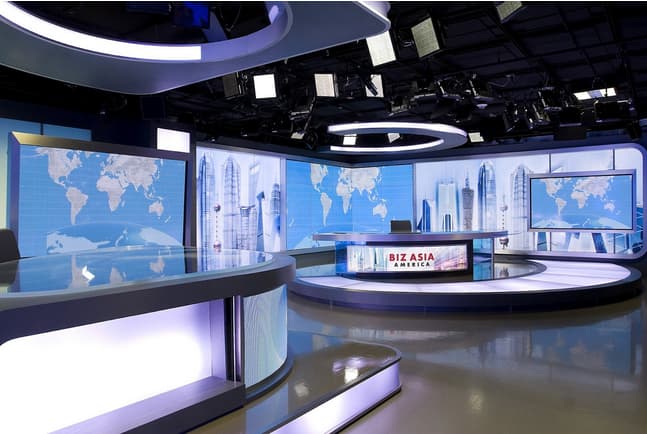Bicycles have become an integral part of modern culture and have penetrated many aspects of our lives. This universal mode of transport, a symbol of freedom, sports and environmental awareness, has long gone beyond the roads and bike paths, finding itself on our TV screens. Television not only covers professional competitions, but also actively uses bicycles in other genres – from documentaries to entertainment shows. Let’s consider how bicycles have been integrated into various television programs and genres.
1. Cycling Races and Sports Broadcasts
The first thing that comes to mind when mentioning bicycles on television is, of course, sports competitions. The Tour de France, Giro d’Italia, Vuelta a España and other cycling races gather millions of viewers in front of their screens. These events have long become international spectacles, where viewers can watch not only the physical feats of the participants, but also admire the picturesque landscapes through which the race routes pass.
Sports channels pay special attention to cycling, offering viewers both live broadcasts of competitions and analytical programs with experts discussing team tactics, the physical fitness of riders and the nuances of the routes. Cycling on television is not just a competition, but a show that combines sports, culture and tourism.
2. Documentaries and social projects
The bicycle has also become an important topic for documentaries. Programs dedicated to bicycle cultures tell about how the cycling movement is developing in different countries. For example, documentaries about bicycle infrastructure in the Netherlands or Copenhagen demonstrate how the bicycle can become the main means of transport for an entire city.
There are also projects dedicated to ecology, where the bicycle is considered one of the most environmentally friendly modes of transportation. Cycling travelers share their stories in films about round-the-world cycling trips, which inspires viewers to have their own adventures and allows them to take a new look at the world.
3. Commercials and TV commercials
Bikes often appear in commercials. They are associated with an active lifestyle, freedom and health, so companies actively use them to promote their products and services. These can be advertising campaigns for bicycle and accessory manufacturers, or completely unexpected products where the bicycle plays a symbolic role, for example, in advertising for drinks, clothing or technology.
Bikes often appear in advertisements promoting an eco-friendly lifestyle. With the growing interest in sustainable development, bicycles have become a symbol of environmental awareness, and therefore a popular image in commercials.
4. Bicycles in entertainment shows
In recent years, bicycles have increasingly appeared in entertainment programs. Television shows such as reality shows or talent shows use bicycles in various challenges. For example, participants can perform complex tricks on a BMX or go through obstacle courses on bicycles, demonstrating their agility and courage.
Extreme sports programs are also popular, where bicycles become the main characters. Shows dedicated to mountain biking, BMX freestyle or city biking allow viewers to immerse themselves in the world of extreme sports and see what incredible things can be done on two wheels.
5. Bicycles in feature films and TV series
In addition to sports and entertainment programs, bicycles are often found in feature films and TV series. They can be an important part of the plot, symbolizing freedom, movement or connection with nature. For example, in films where the heroes travel the world on bicycles, their independence and thirst for adventure are emphasized.
In addition, a bicycle can become a characteristic feature of a character. Remember the classic scenes from films where the heroes ride bicycles along picturesque streets, emphasizing their romantic or frivolous nature. Bicycles in films and TV series create an atmosphere of coziness, adventure or nostalgia.

Why does television play an important role in the lives of modern people?
In the era of digital technology and the Internet revolution, television continues to play an important role in the lives of modern people. Despite the growing popularity of streaming services, social networks and online content, television maintains its position as one of the key sources of information, entertainment and education. Let’s consider why television remains an important element of everyday life.
- The main source of news and information
Television is still one of the most prompt and reliable sources of news. News channels operate around the clock, offering up-to-date information on events in the world, including politics, economics, weather, culture and sports. In an era when the amount of false and unreliable information on the Internet is growing, many people continue to trust television news programs, considering them to be proven and authoritative sources.
- Mass entertainment for all generations
Television provides a variety of content that is suitable for all ages and tastes. Entertainment programs, series, reality shows, concerts, comedy programs and sports broadcasts create a shared cultural experience, bringing people together. For many families, evening television programs remain a tradition that allows them to spend time together and discuss what they have seen.
- Educational and educational content
Television offers a wide range of educational programs, documentaries and channels that help expand horizons and gain new knowledge. Nature, science, history and culture channels create opportunities for self-education and access to information that may be difficult to find online. This makes television an important tool for personal development and education.
- Accessibility and ease of use
Television is characterized by its simplicity and accessibility. Unlike the Internet, which requires active participation of the viewer, television offers passive viewing, which appeals to people who want to relax and receive information without having to search. In addition, televisions remain one of the most accessible devices for mass media consumption, especially for older generations who may not use computers or smartphones.
- A Moment of Social Unification
Television plays an important role in creating collective experiences. Sporting events such as the Olympic Games or the FIFA World Cup, cultural events, political debates and award ceremonies are often broadcast live, bringing together millions of viewers around the world. Watching and discussing such events together becomes part of social life and creates a sense of unity.
- A Role in Shaping Public Opinion
Television has a huge influence on shaping public opinion. News, analytical programs and talk shows help people understand current social and political processes, provide a platform for discussing important issues. Television is capable of not only informing, but also directing public sentiment, promoting cultural values and norms, which makes it a powerful tool of influence.
- A Tool for Advertising and Business
For business, television remains one of the main marketing and advertising tools. Television commercials allow you to reach a huge audience in a short period of time, and large-scale advertising campaigns are often launched on television. The visual impact and repetition of advertising make television an effective means of promoting goods and services.
A Convenient Way to Explore New York: Central Park Bike Rental
If you want to explore one of the most iconic parks in New York, Central Park Bike Rental is the perfect solution. Renting a bike allows you to move freely around the vast territory of Central Park, discovering its picturesque alleys, gardens and monuments. Not only is it an eco-friendly, but it is also a fun way to see more in a short time. You will be able to enjoy the fresh air and unique atmosphere of the park, bypassing traffic jams and crowds of tourists.
Conclusion:
Bikes have firmly taken their place on television. From broadcasts of grand races to participation in advertising campaigns and entertainment shows, they have become an integral part of screen culture. In the modern world, bicycles represent not only sports and an active lifestyle, but also new values: environmental friendliness, freedom and the desire for health. And the more this topic is reflected on television, the more it influences our perception of the world and our attitude towards this simple, but so significant invention.


